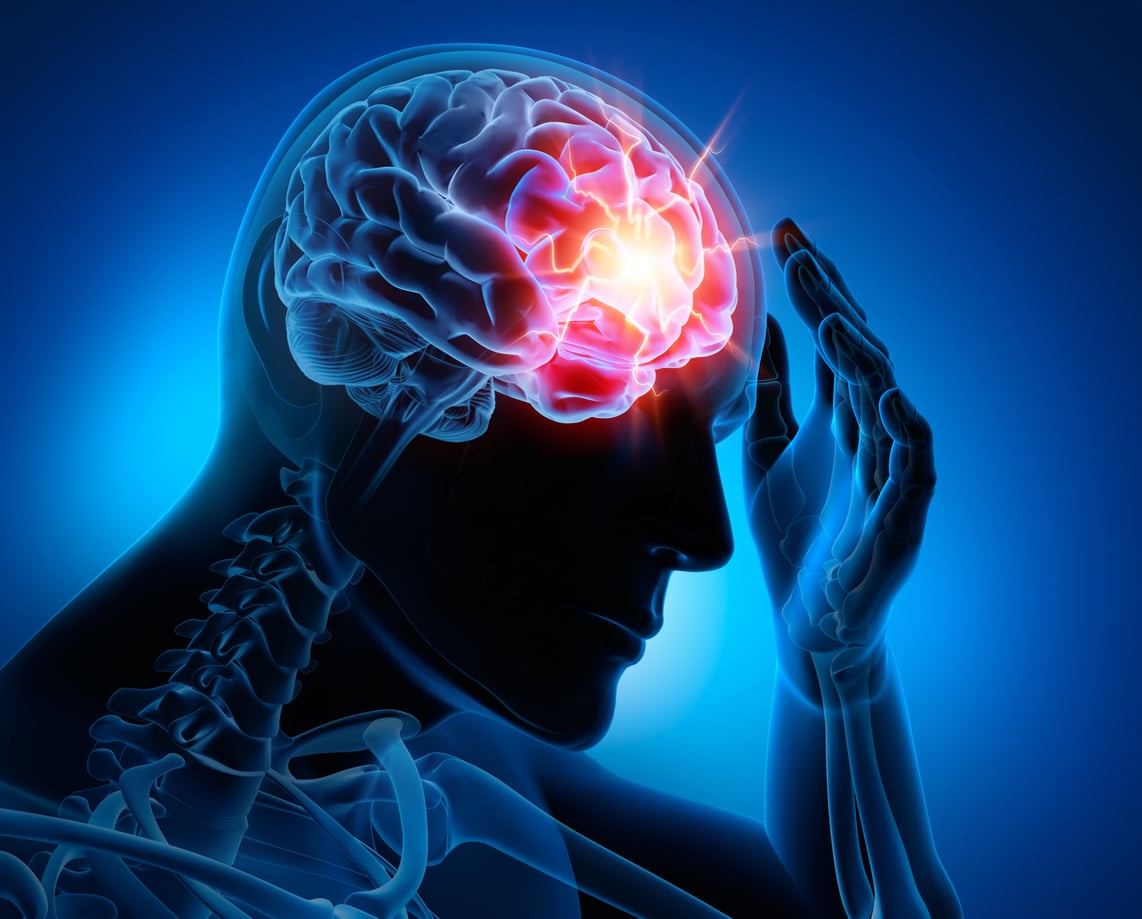
The Law Offices of Kyle E. Koester brings expertise in personal injury law to the discussion of the long-term effects of brain injuries. With a focus on providing tailored support and coping strategies, Kyle Koester, the managing attorney practicing in Woodstock, GA and surrounding areas, understands the cognitive, emotional, physical, and social challenges individuals may face after a brain injury. Memory issues, concentration difficulties, emotional instability, physical limitations such as mobility challenges, and behavioral changes like irritability and impulsivity can all have lasting impacts on daily life and relationships. Social challenges and communication difficulties may also arise, underscoring the importance of effective coping strategies. Discover more about the complexities of brain injury consequences and how to navigate them effectively with the insights from the Law Offices of Kyle E. Koester.
Key Takeaways
- Cognitive impairments persist post-injury, affecting memory and daily functioning.
- Emotional instability leads to mood swings and impulsive behavior, impacting relationships.
- Memory deficits pose risks for cognitive decline, affecting daily life and learning.
- Behavioral changes include irritability, impulsivity, and difficulty controlling emotions.
- Physical limitations post-injury involve mobility challenges and muscle weakness.
Cognitive Impairments
After experiencing a brain injury, cognitive impairments may persist in various forms, affecting memory, attention, and problem-solving abilities. Memory issues can manifest in different ways, such as difficulty recalling recent events or learning new information. You might find yourself repeating questions or forgetting where you placed everyday items. These memory lapses can be frustrating and impact your daily functioning.
In terms of attention, you may struggle to concentrate on tasks for extended periods. You might notice that you get easily distracted or have trouble focusing in noisy environments. This can make it challenging to follow conversations or complete work assignments efficiently. Simple tasks that once required minimal effort may now seem overwhelming.
Furthermore, problem-solving abilities may be affected following a brain injury. You might find it challenging to think through complex issues, organize your thoughts logically, or make decisions effectively. Tasks that involve planning ahead or considering multiple factors could pose difficulties. As a result, you may feel less confident in your ability to solve problems or navigate challenging situations.
Emotional Instability
Experiencing a brain injury can lead to emotional instability, impacting your mood and reactions in various situations. This instability may manifest as sudden mood swings, irritability, or exaggerated emotional responses. You might find yourself feeling overwhelmed by emotions that you used to handle with ease before the injury. Simple tasks or changes in routine could trigger intense emotional reactions, making it challenging to regulate your feelings.
Furthermore, brain injuries can affect your ability to empathize with others, causing difficulties in understanding and responding appropriately to their emotions. You may struggle to interpret facial expressions, tone of voice, or social cues, leading to misunderstandings and strained relationships. This emotional disconnect can be frustrating for both you and those around you, creating additional stress and tension in your interactions.
In some cases, emotional instability following a brain injury can also lead to impulsive behavior. You may act without thinking through the consequences, engaging in risky activities or making decisions that are out of character. This impulsivity can further complicate your relationships and daily life, requiring additional support and strategies to manage effectively.
Memory Deficits
Memory deficits following a brain injury can pose risks for memory impairment, potential cognitive decline, and likelihood of experiencing learning difficulties. These challenges may impact various aspects of your daily life, from remembering important information to acquiring new knowledge. Understanding these implications is essential in managing and seeking appropriate support for your cognitive health.
Memory Impairment Risks
One important risk associated with brain injuries is the potential for long-term memory deficits. These memory impairments can greatly impact your daily life and overall well-being. Here are some memory impairment risks to be aware of:
- Difficulty remembering recent events or conversations
- Struggling to retain new information or learn new things
- Forgetting important dates, appointments, or tasks
- Finding it challenging to recall familiar faces or names
It is vital to seek proper medical attention and support if you experience any of these memory deficits following a brain injury. Remember, early intervention and appropriate strategies can help manage and improve memory impairments over time.
Cognitive Decline Potential
To better understand the cognitive decline potential associated with memory deficits after a brain injury, consider the impact on daily functioning and quality of life. Memory deficits can noticeably hinder your ability to remember important information like appointments, tasks, or even loved ones’ names. This can lead to frustration, anxiety, and a sense of isolation as you struggle to keep up with conversations and daily responsibilities. Simple tasks may become challenging, affecting your work performance, relationships, and overall well-being. Additionally, memory deficits can make it difficult to learn new information or skills, further exacerbating cognitive decline over time. Seeking appropriate medical care, cognitive therapy, and support systems can help manage these challenges and improve your quality of life post-injury.
Learning Difficulties Likelihood
Experiencing memory deficits following a brain injury can greatly increase the likelihood of facing learning difficulties in various aspects of your daily life. These difficulties may manifest in the following ways:
- Struggling to retain new information
- Difficulty recalling previously learned material
- Challenges with concentration and focus
- Trouble organizing thoughts and tasks
It is essential to seek proper medical attention and support to address these learning difficulties effectively. By working with healthcare professionals and implementing tailored strategies, you can enhance your cognitive abilities and improve your overall quality of life despite the challenges posed by memory deficits.
Behavioral Changes
Behavioral changes following a brain injury can greatly impact an individual’s daily life and relationships. These changes may manifest as irritability, impulsivity, aggression, or difficulty controlling emotions. You might find yourself experiencing mood swings or outbursts that are critical of your pre-injury self. This can lead to strained relationships with family, friends, and colleagues as they may struggle to understand or cope with these sudden changes in your behavior.
Moreover, individuals with brain injuries may exhibit changes in social skills and judgment. You could find it challenging to interpret social cues, maintain appropriate boundaries, or engage in conversations effectively. These difficulties can result in feelings of isolation and frustration, further impacting your mental well-being.
Additionally, some individuals may develop risky behaviors or lack inhibition after a brain injury. You may engage in activities that are dangerous or inappropriate without considering the consequences. This can pose significant challenges to your safety and the safety of those around you.
Seeking support from healthcare professionals, such as neuropsychologists or therapists, can help you navigate these behavioral changes post-brain injury. Developing coping strategies, participating in behavioral therapy, and building a support network are essential steps in managing these challenges and improving your quality of life.
Physical Limitations
You may find yourself facing mobility challenges after a brain injury, making everyday tasks more difficult. Muscle weakness can greatly impact your ability to perform physical activities as you did before. Issues with balance and coordination may also arise, affecting your overall physical function.
Mobility Challenges Post-Injury
Struggling to move freely and independently, individuals with brain injuries often face significant physical limitations in their mobility post-injury. This can greatly impact their daily lives and independence. Here are some challenges they may encounter:
- Difficulty walking or maintaining balance
- Impaired coordination and motor skills
- Reduced muscle strength, leading to limitations in movement
- Challenges with activities requiring fine motor skills
These mobility challenges can vary in severity depending on the type and location of the brain injury. Seeking proper medical care and rehabilitation services can help individuals with brain injuries improve their mobility and regain some independence in their daily lives.
Muscle Weakness Implications
After facing mobility challenges post-injury, individuals with brain injuries may experience muscle weakness implications that further limit their physical abilities. Muscle weakness can affect various parts of the body, making simple tasks like standing, walking, or lifting objects more difficult. This weakness often stems from the damage to the brain’s motor control centers, disrupting the signals sent to the muscles. As a result, you may find it challenging to perform daily activities that once seemed effortless. Physical therapy focused on strengthening exercises and targeted muscle training can help improve muscle tone and function over time. Collaborating closely with healthcare professionals to develop a personalized rehabilitation plan that addresses your specific muscle weakness concerns and helps you regain strength and mobility is crucial.
Balance and Coordination
Encountering challenges with balance and coordination post-brain injury can greatly impact daily activities and physical capabilities. Your brain’s ability to coordinate movements and maintain balance may be compromised, leading to difficulties in performing simple tasks. Here are some potential effects on your balance and coordination:
- Dizziness or lightheadedness may occur frequently.
- Walking in a straight line could be challenging.
- Coordination issues might affect your ability to perform precise movements.
- Engaging in activities that require balance, like climbing stairs, could become more difficult.
These challenges may necessitate the use of assistive devices or modifications to your environment to help you navigate daily life more effectively.
Social Challenges
Experiencing social challenges after a brain injury can greatly impact daily interactions and relationships. These challenges may manifest in various ways, such as difficulty with communication, emotional regulation, and social cues. Conversations that once flowed effortlessly may now require more effort to process information and respond appropriately. You might find yourself feeling overwhelmed in noisy or crowded environments, making social gatherings challenging to navigate.
Furthermore, changes in personality or behavior resulting from the brain injury can lead to misunderstandings with friends, family, or colleagues. Your loved ones may struggle to adapt to these changes, causing strain in relationships that were once solid. It’s common to feel frustrated or isolated as you try to rebuild connections and establish new ways of engaging socially.
In addition, returning to work or school after a brain injury can present its own set of social challenges. You might encounter biases or misconceptions about brain injuries, making it harder to reintegrate into your previous social circles. Explaining your condition to others and advocating for your needs can be exhausting but essential in fostering understanding and support.
Conclusion
Overall, brain injuries can have substantial effects on various aspects of your life. From cognitive impairments to emotional instability, memory deficits, behavioral changes, physical limitations, and social challenges, these impacts can profoundly alter your day-to-day functioning. It is important to seek proper medical attention and support to manage these effects and improve your quality of life in the long term. Remember, you are not alone in this journey and help is available to navigate the challenges ahead. Contact the Law Offices of Kyle E. Koester, LLC for a free car accident injury consultation. Koester Legal has won over 5 Million in settlements for his clients, and they are ready to assist you in seeking the compensation you deserve.



No comment yet, add your voice below!